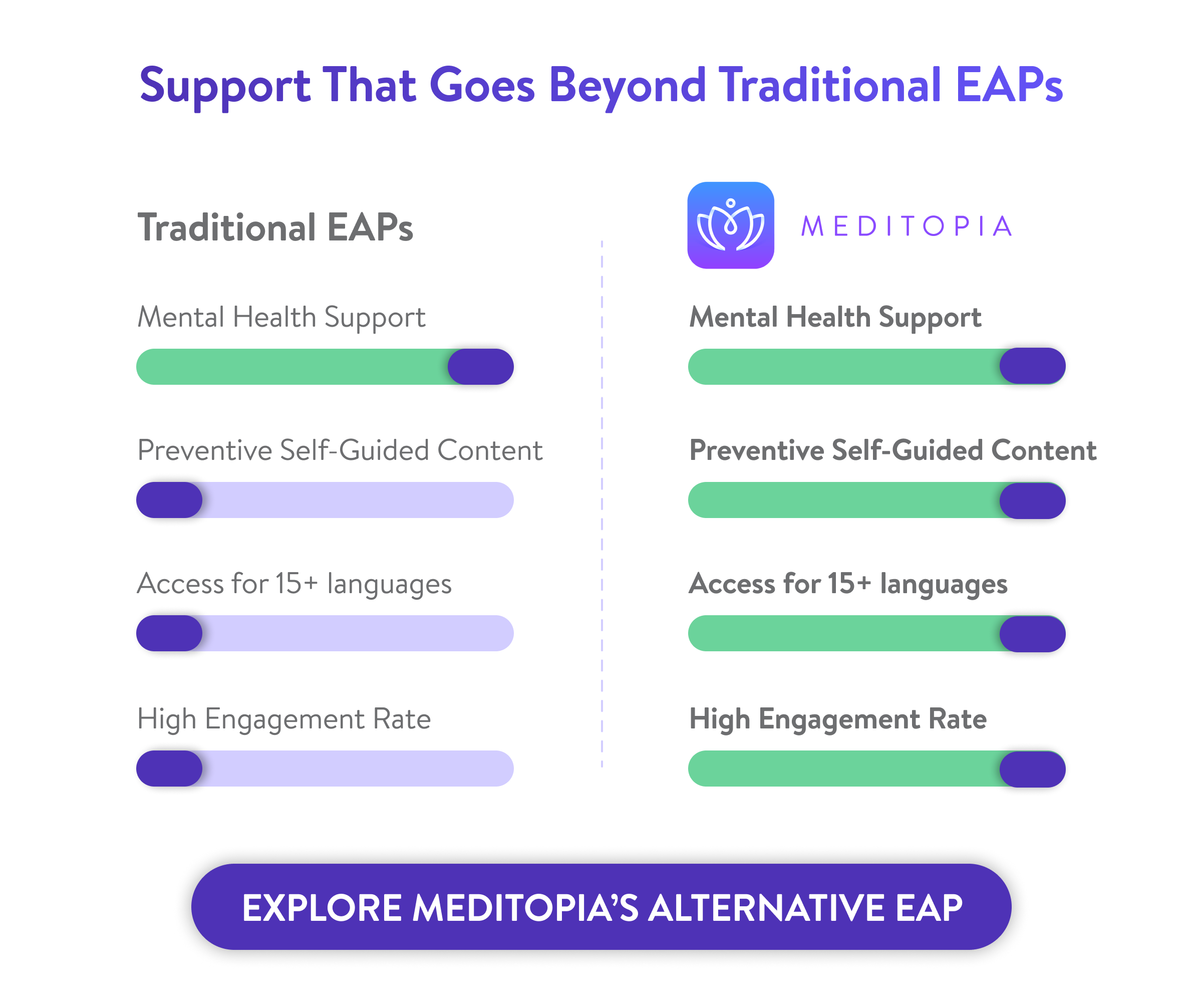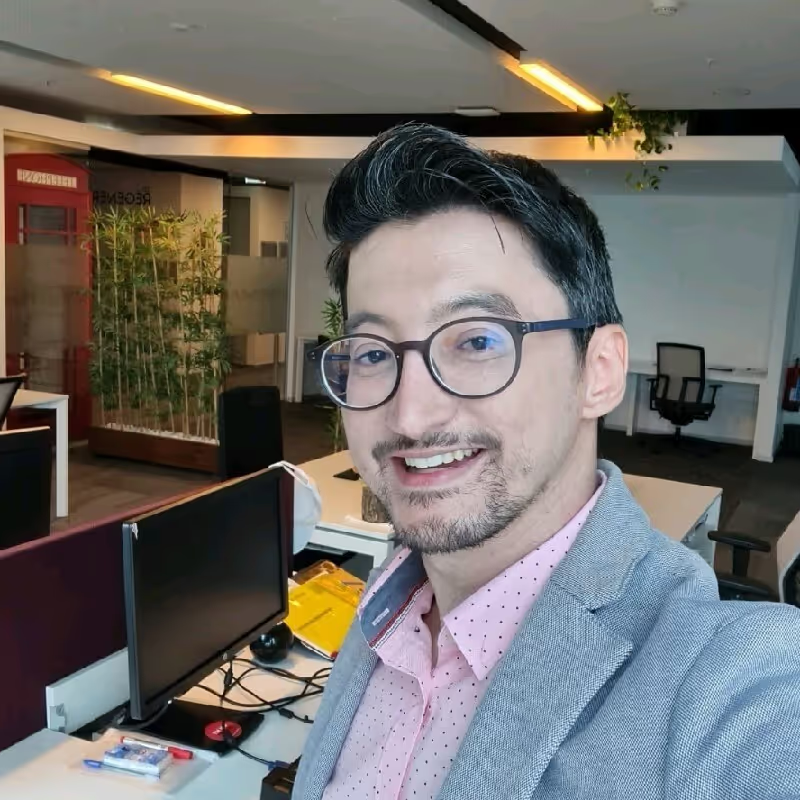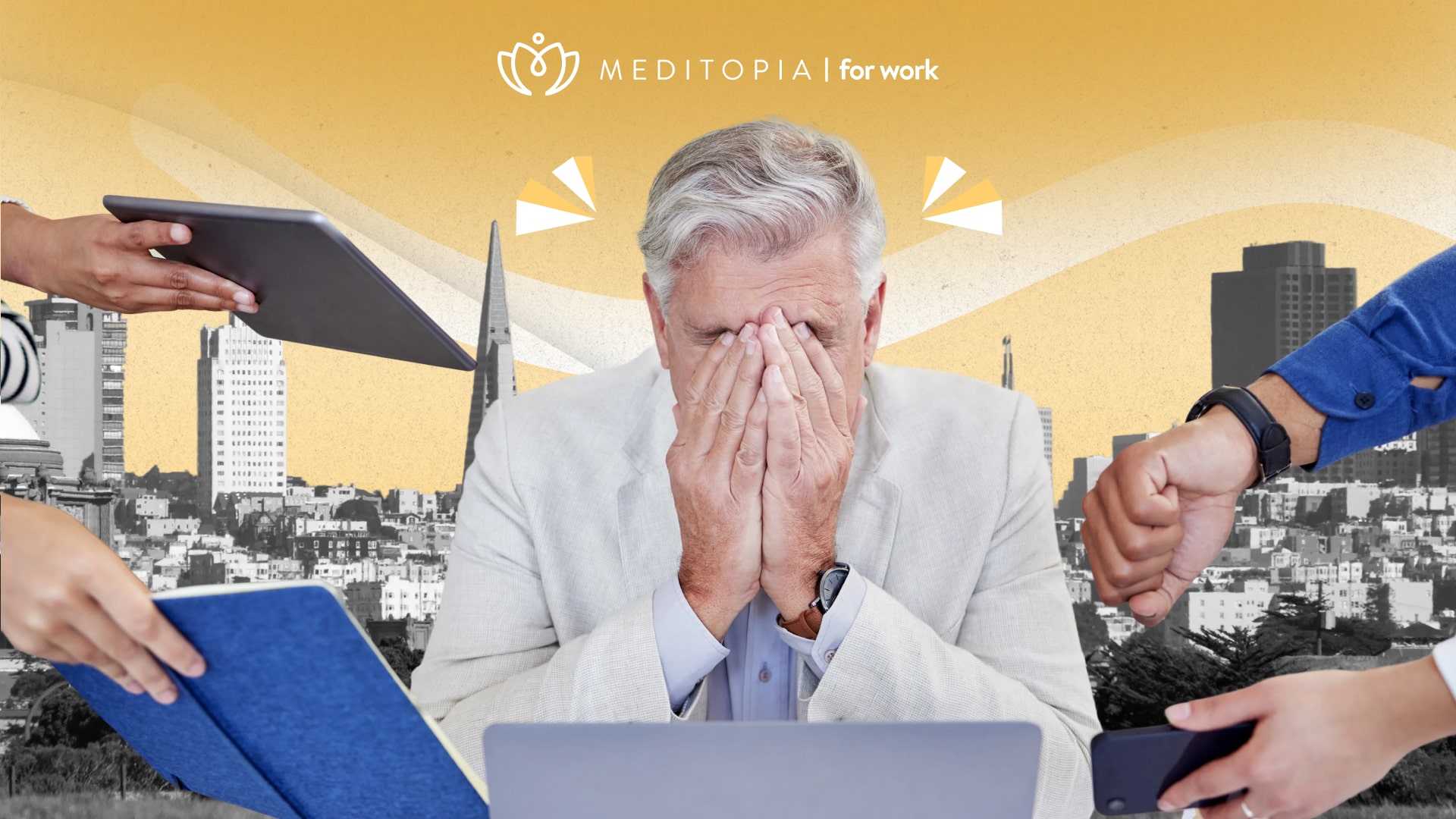A survey by MindNation found that 72% of 14,000 Filipino employees reported feeling stressed at work, a figure that clearly underscores the urgent need for structured support [1]. But where do you being? Keep reading to discover top EAP providers in the Philippines, and how they can help your organization reduce absenteeism, sick leaves, and more.
Why EAPs Are Essential for Businesses in the Philippines
The modern Filipino workforce expects more than just a paycheck, they’re seeking employers who actively support their mental and emotional wellbeing. For medium to large companies, working with reliable employee assistance program providers is a strategic advantage. Here's why:
- Compliance with Mental Health Regulations: The Mental Health Act (RA 11036), enacted in 2018, explicitly mandates integration of mental health promotion into workplaces [2].
- DOLE Advisory and Institutional Encouragement: The Department of Labor and Employment has issued labor advisories urging employers to adopt mental health support frameworks, aligning with national policy.
- Scarcity of Mental Health Professionals: In 2022, the Philippines had about 1,600 registered psychologists and 500 psychiatrists for a population of over 110 million, pointing to significant gaps in access to care [3].
- Strong Return on Investment from Mental Health Initiatives: Meta‑analyses and employer reports indicate that for every dollar spent on mental health support, the return can be 4x or more in productivity, reduced absenteeism, and other gains [4].
- Persistent Employee Mental Strain in the Region: In a survey of HR professionals across ten Asian countries, 82% reported that employees still face significant mental strain, signaling demand for structured support [5].
- Remote & Hybrid Workforce Risks: As many companies in the Philippines adopt hybrid or remote models, employees may lack easy access to in‑person support. EAP providers with digital-first approaches help bridge that gap.
Top Employee Assistance Programs in the Philippines
Below are six EAPs that are active (or with presence) in the Philippines, shown as examples of employee assistance programs you might evaluate in your RFPs or pilot programs. This is a comparison of their key services, unique advantages, and pricing models.

1. Meditopia for Work
Meditopia stands out as a global mental well-being platform that has successfully adapted to organizational needs through its programs. What sets Meditopia apart is how it supports companies with multicultural teams, offering content in over 14 languages and scalable features. For Philippine-based companies looking for a tech-forward solution with minimal operational overhead, Meditopia provides a low-friction entry point to corporate mental health.

Key Services
- 1-1 Care, and access to a vast network of psychoterapists, personal trainers, advisors, and more.
- Access to guided meditations, mindfulness modules, sleep stories, and well‑being content.
- Corporate implementation support and onboarding for HR teams.
Unique Selling Points
- Specialized webinars and workshops for managers and employees.
- Content is available in 14 languages to adapt to non-English speaking teams.
- AI mental health companionship, trained by therapists and powered by OpenAI.
Pricing Model
- Tailored quotes based on company size and features.
2. MindNation
MindNation is a homegrown provider with a deep understanding of the cultural and psychological context of Filipino workplaces. Its focus on combining human connection with tech makes it particularly valuable for organizations undergoing digital transformation but still valuing human-centered HR support services.
Key Services
- Therapy, coaching, and well‑being coaching with licensed professionals.
- 24/7 chat support and self‑help tools.
- Short support sessions and video consultations.
Unique Selling Points
- Blended support (chat + video + coaching) gives flexibility for varying levels of need.
Pricing Model
- Their “Infinity Plan” starts at P4,999/month for a set bundle of services.
3. DFS Mental Health (Dear Future Self)
DFS Mental Health delivers deeply localized EAP solutions with services rooted in Filipino culture, language, and healthcare realities. Their work aligns closely with the national Mental Health Act, making them a strategic partner for compliance-driven HR teams who need more than just off-the-shelf services.
Key Services
- Individual counseling, coaching, psychotherapy.
- Group debriefing, webinars, mental health policy consultation.
Unique Selling Points
- Deep localization: offers counseling in multiple Filipino languages (Tagalog, English, Bisaya, etc.).
- Full spectrum support: beyond counseling, they help with policy, assessment, and mental health compliance.
Pricing Model
- Custom per organization.
4. MyGolana
MyGolana offers a flexible, on-demand approach to mental health services that appeals to organizations with mobile, distributed, or freelance-heavy workforces. Unlike traditional EAPs, MyGolana focuses on giving employees the ability to initiate support when they need it.
Key Services
- On-demand counseling (text / voice)
- Mental health assessments
- Webinars and wellness sessions
Unique Selling Points
- A flexible “on-demand” model that lets employees access support as needed
- Focus on accessible mental health rather than structured long-term programs
Pricing Model
- PEPM.
5. Infinit Care
Infinit Care is designed for data-driven HR departments looking to integrate wellness into their performance and retention strategies. With options for remote therapy, scalable digital sessions, and automated reporting, Infinit Care aligns well with companies undergoing workforce expansion or decentralization.
Key Services
- Digital therapy/telehealth
- Analytics dashboards for HR
- Wellness content and training
Unique Selling Points
- Emphasis on data and dashboards, giving HR visibility into usage and trends
- Scalable for remote and hybrid teams
Pricing Model
- Custom.
6. AHA! Behavioral Design
AHA! Behavioral Design isn’t a conventional EAP, but it fills a unique gap: helping companies embed behavioral wellness principles into their culture through design thinking, training, and behavioral science. It’s best suited for large enterprises or government institutions aiming to shift systemic behaviors.
Key Services
- Behavioral design workshops and training
- Mental health consulting
- Custom program design
Unique Selling Points
- Strong behavioral science background, useful for interventions and culture change
- Good fit for organizations wanting to embed mental wellness into processes
Pricing Model
- Custom quotes based on scope.
Extended List of EAP Organizations in the Philippines
How to Choose the Right EAP Companies in the Philippines
Choosing from the many EAP providers available in the Philippines can be overwhelming, especially when employee needs are evolving fast. To make the right decision, HR leaders should look beyond basic offerings and evaluate how each solution aligns with organizational culture, workforce demographics, and operational models.
Here are the most important factors to consider when evaluating employee assistance program providers:
- Large enterprises may benefit from providers offering multilingual counselors, integrated dashboards, and compliance-ready features.
- Startups or SMEs might prefer more agile, subscription-based options that provide essential services without the overhead.
- Today’s workforce isn’t limited to one location or schedule. That’s why having remote EAP services and mobile-accessible platforms is critical.
- Check for 24/7 support options, especially for companies in BPOs, healthcare, or industries with rotating shifts.
- If your organization is integrating EAPs into broader employer-sponsored benefits, ensure the provider can accommodate that with seamless communication between departments.
- In high-stress or trauma-prone industries (e.g., logistics, healthcare, law enforcement), having a provider like Meditopia that offers crisis intervention is essential. This means having protocols for critical incidents, trauma debriefing, or sudden loss response.
- Make sure the provider aligns with local laws, including the Philippine Mental Health Act and Data Privacy Act.
Pro Tip for HR Teams: Start with a short-term pilot with 3-6 months of engagement and evaluate uptake and satisfaction. Then use that data to negotiate long-term terms with your chosen EAP vendor.
Discover EAP Companies by Countries
Want to explore how Employee Assistance Program providers operate in other regions? Discover global trends and insights on employee assistance services around the world.

























